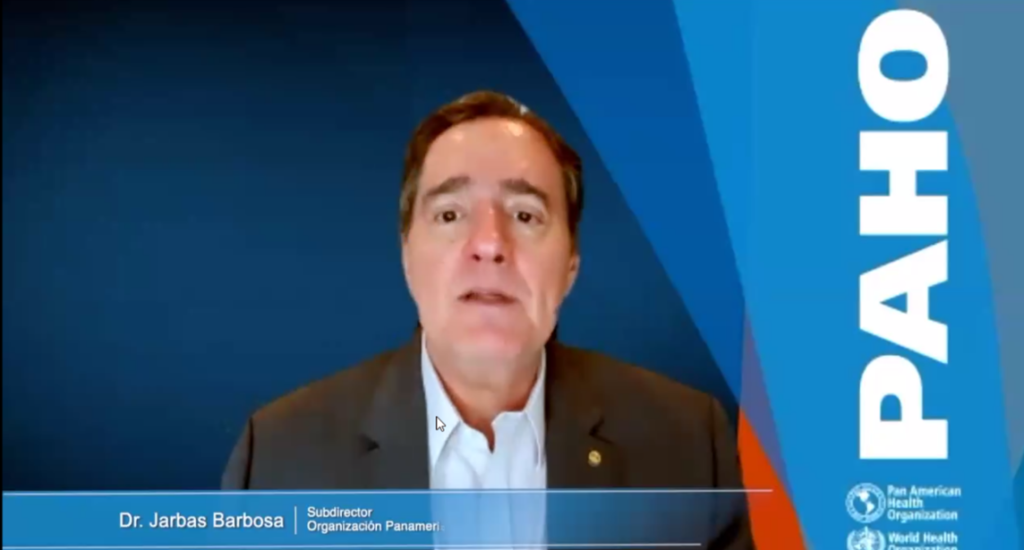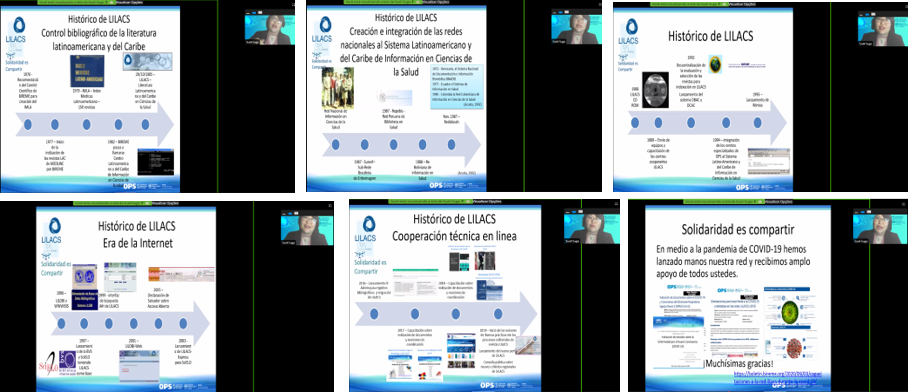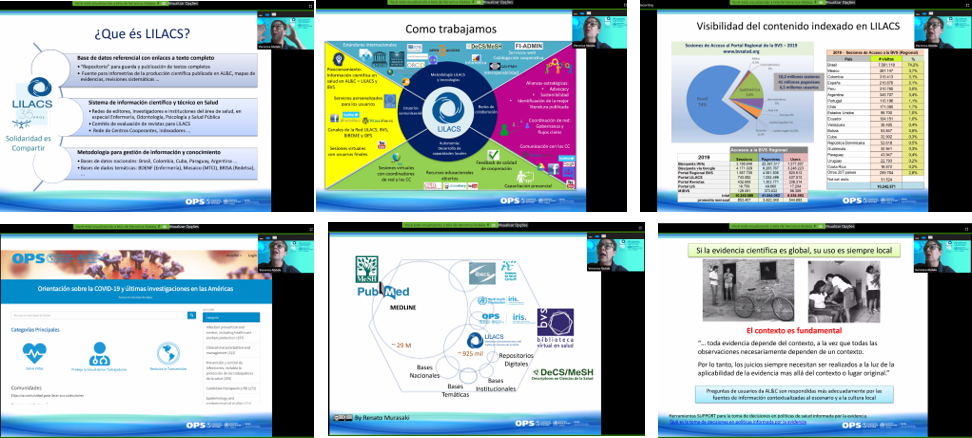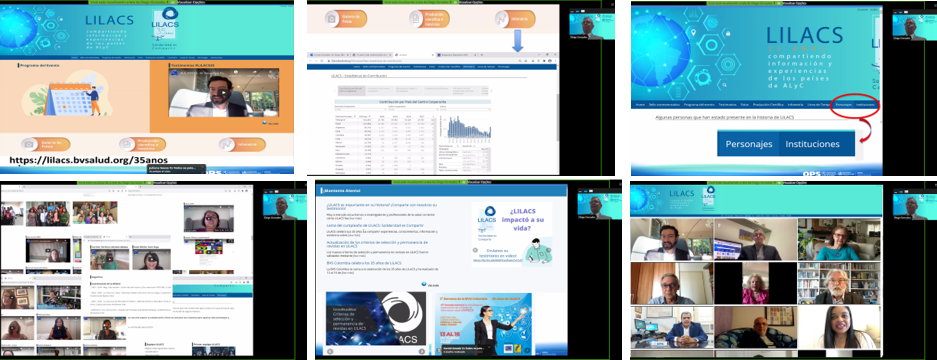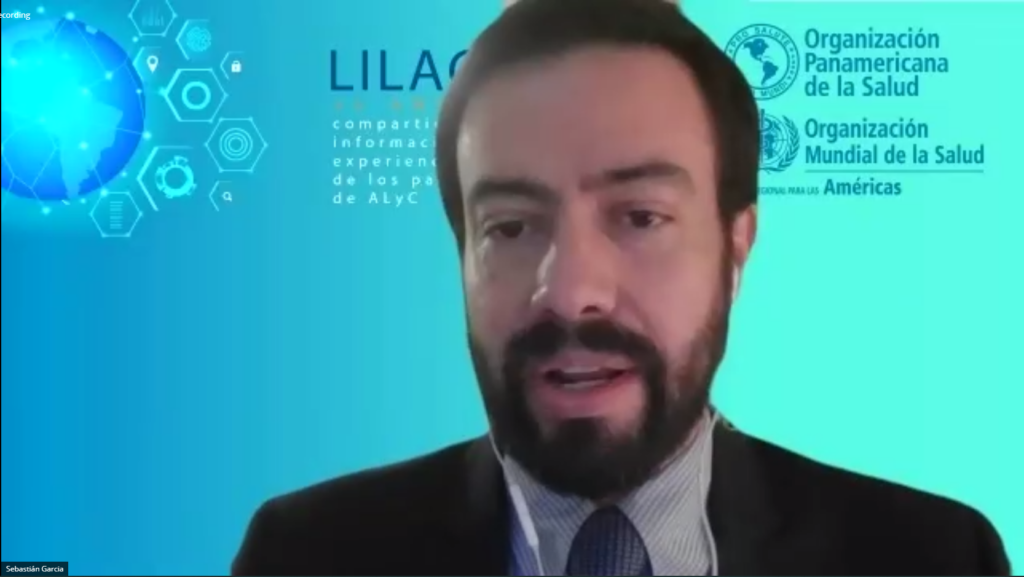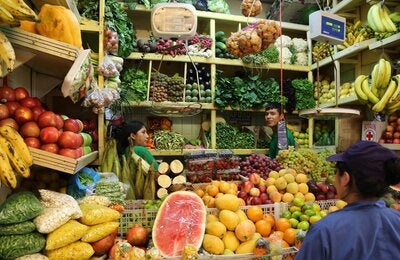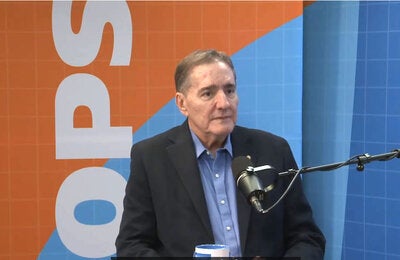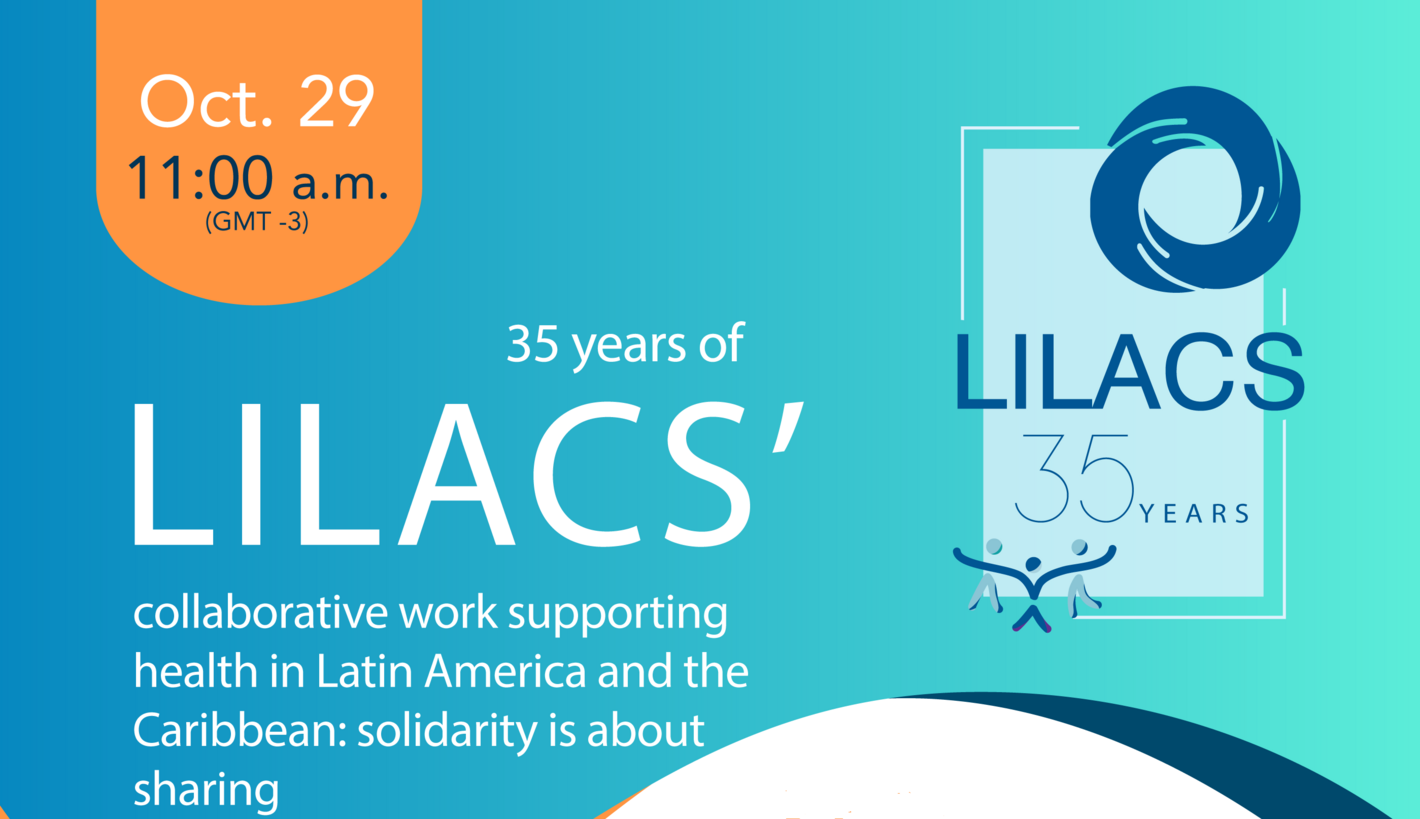
São Paulo, 10 November 2020 (PAHO/WHO)—LILACS – Latin American and Caribbean Health Science Literature – celebrates its 35 years sharing experiences, knowledge, information and evidence on health in Latin America and the Caribbean, with the motto “Solidarity is about sharing”. In times of the COVID-19 pandemic, LILACS network professionals reinforce their commitment to access and democratization of health information to respond to public health issues, which motivated the creation of LILACS 35 years ago.
LILACS was born from the evolution of the IMLA – Index Medicus Latinoamericano, and from networking, by constituting the Latin American and Caribbean Health Sciences Information System, whose National Coordinating Centers today reach 26 countries which bring not only quality scientific and technical output, but also the commitment to provide guidance to health science journal editors in their countries.
What better way to mark these 35 years than showing recognition and gratitude for all the years of dedication and commitment of the LILACS network? So, it happened. The 35th anniversary of LILACS was marked by an online session that took place on 29th, transmitted through the Zoom platform and accompanied by more than 400 connections, with the participation of PAHO/WHO leaders and presentations on the history of LILACS, current situation and future perspectives, under the moderation of BIREME’s Director, Diego González.
A video by the PAHO/WHO Deputy Director, Jarbas Barbosa da Silva, opened the session, stressing the importance of the LILACS database for the region, as an initiative built with the countries’ collaboration. “Today, that we promote open science and fight infodemia, it is a privilege to have databases like this, which requires efforts at national and regional level, in addition to being used globally, as in the case of the Global Index Medicus”.
Sueli Suga, supervisor of Referential Information Sources at BIREME, and coordinator of LILACS, presented the history of LILACS, from the bibliographic control of Latin American literature through the Index Medicus Latinoamericano (IMLA), in 1976, the creation of LILACS in 1985, going through numerous milestones of methodological and technological development, of the creation and integration of national networks, until it evolved to the information management model that we know today. On more recent developments, Sueli highlighted the online technical cooperation and training activities on document indexing, coordination meetings and sessions of good practices for publishing journals. No less important are the products developed in support of information about COVID-19 that are not limited to scientific and technical literature, but include innovative formats such as the windows of knowledge and guidance for non-specialized audiences based on information available at LILACS.
Por otro lado, el ecosistema de la comunicación científica en salud y el rol de LILACS para América Latina y el Caribe fue presentado por Verônica Abdala, Gerente de Productos y Servicios de Información de BIREME. La misión de LILACS es brindar acceso y visibilidad a la literatura científica y técnica publicada en los países de AL&C para reducir la brecha de información, brindar información basada en evidencia para la toma de decisiones y reducir las inequidades en salud. LILACS reúne las características de una base de datos de referencia con un enlace al texto completo, un sistema de información en salud y una metodología para la gestión de la información y el conocimiento. Verônica detalló cómo LILACS conecta redes de colaboración, desarrolla capacidades locales, se comunica con sus usuarios y utiliza metodologías para interoperar datos, generar indicadores de acuerdo con estándares internacionales y otros servicios web. La relevancia de LILACS destaca Verônica, radica en indexar literatura científica que no está presente en PubMed u otros sistemas de información importantes. LILACS contribuye directamente a la visibilidad de la producción científica y técnica en los países de América Latina y el Caribe. “Las preguntas de los usuarios de AL&C son respondidas de manera más adecuada por fuentes de información que se contextualizan al escenario y la cultura local”.
Next, Sueli Suga presented the update of the evaluation criteria and permanence of scientific journals in the LILACS database, motivated by the change in the scientific communication scenario, the recommendations that emerged from the Editors’ Meeting at CRICS10, and the recommendations of the LILACS Brazil Committee, among others. others. The process took place through public consultation carried out in two stages, in 2019, and in 2020. The updating of the criteria considered aspects such as the scientific merit of the articles, access to the full text, periodicity, punctuality, compliance with ICMJE rules, COPE and EQUATOR, and authorship criteria, to name only the main ones. The updated criteria are available at the following link.
The celebratory Portal LILACS 35 years was presented by Diego González, who highlighted the statements of personalities from PAHO/WHO and BIREME as former directors, supervisors and collaborators who contributed to the construction of LILACS. It showed the timeline, which highlights the milestones in the conceptual, methodological and technological evolution of LILACS, and the Characters and Institutions page, which includes, or seeks to include everyone who at some point made a contribution to the collective construction of this database , of the 26 countries that make up the LILACS Network. This page, says González, remains active and receiving new testimonials.
Finally, Sebastián Garcia Saisó, Director of the PAHO/WHO Department of Evidence and Intelligence for Health Action, concluded the session with two messages. The first acknowledging all who participated to make LILACS active and evolving, through a network of cooperating centers that work to give visibility to health scientific output in the region, considering the spirit of solidarity by working in network, which is highlighted in the slogan of this event: Solidarity is about sharing. “By expressly thanking all those who participate in capacity building and training new generations in the ecosystem of the scholarly community in LA&C”. The second message was a sincere congratulations on behalf of PAHO to everyone for these 35 years of LILACS and many others to come.
Diego González once again acknowledged everyone for their presence and the countless messages sent through the chat. The event ended with a musical performance in honor of LILACS offered by the LILACS Network of Paraguay.

